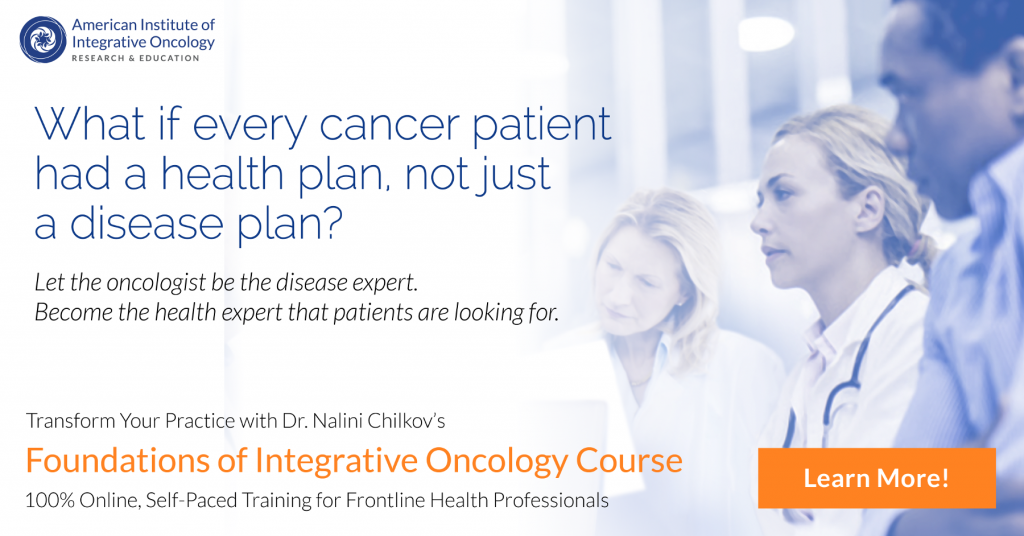“An integrative health focused cancer support plan should begin at diagnosis and persist through long term healthy survivorship and promote a body where cancer cannot thrive.”
By the year 2024 there will be over twenty million cancer survivors in the US alone. This rapidly growing population of survivors obliges all frontline clinicians to learn how to support patients at every stage of the cancer journey.
For all of these patients, a health model (not just a disease model) is required.
It is necessary to not only understand the characteristics of tumor cells but also to understand the environment in which the development, proliferation, growth, and spread of cancer cells are permitted to occur.
This is known as the Cancer Terrain or the Tumor Microenvironment, in which epigenetic signaling occurs and cancer gene expression can be influenced by diet, functional foods, lifestyle, nutraceuticals, botanicals, and phytochemicals.
Influencing the ecology of this cancer biosystem impacts prognosis and outcomes and changes risks and the trajectory of the disease.
The ultimate goal is not just to improve patients’ life spans but also their health spans and quality of life.
An integrative health-focused, cancer support plan should begin at diagnosis and persist through long-term, healthy survivorship and promote a body where cancer cannot thrive. It’s the responsibility of the oncology team to reduce tumor burden to the greatest degree possible. It is the responsibility of primary care frontline practitioners to provide the health side of the cancer equation.
By leveraging what we now know about tumor biology and the factors that promote tumor growth, we can help patients whose lives have been touched by cancer to get well, stay well, and live well beyond cancer.
When a patient has a collaborative team providing integrative care everyone wins, the patients, families and care providers. Patients who have a clear plan and support have the opportunity for better outcomes, better prognosis, greater peace of mind, a sense of control and agency and an improved quality of life.
Let the oncologist be the cancer expert. You can be the health expert on their team.

